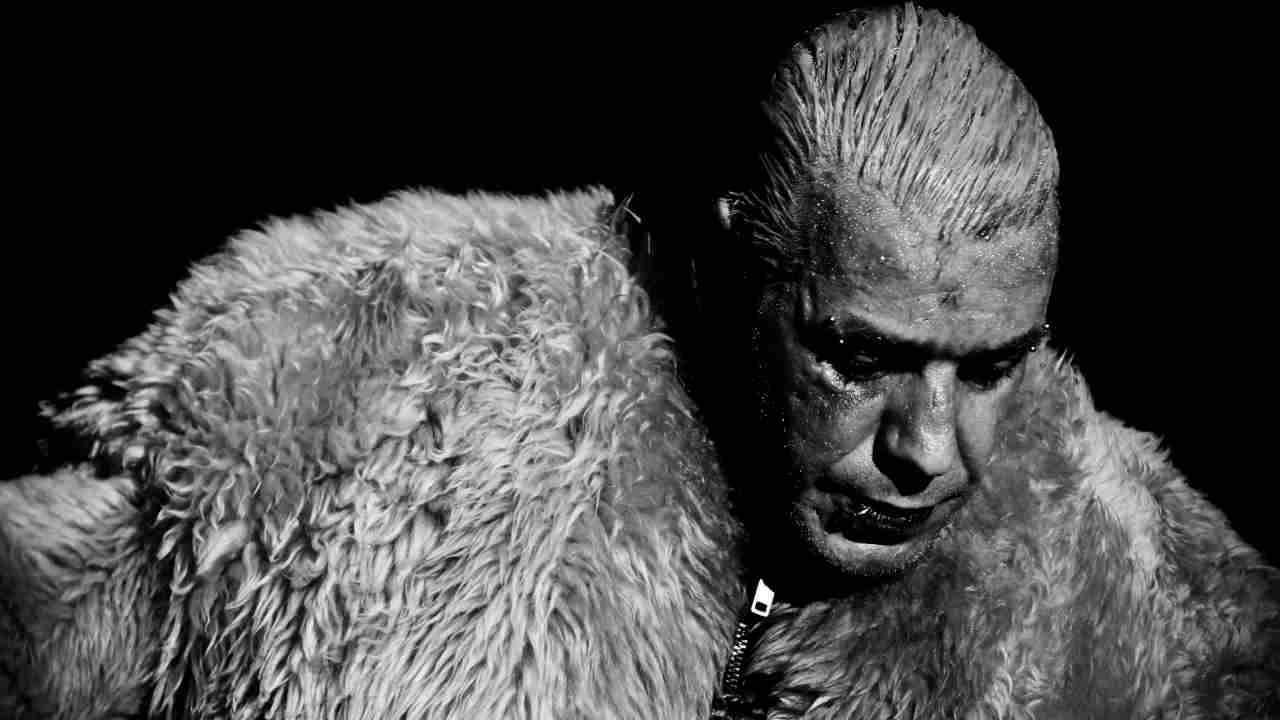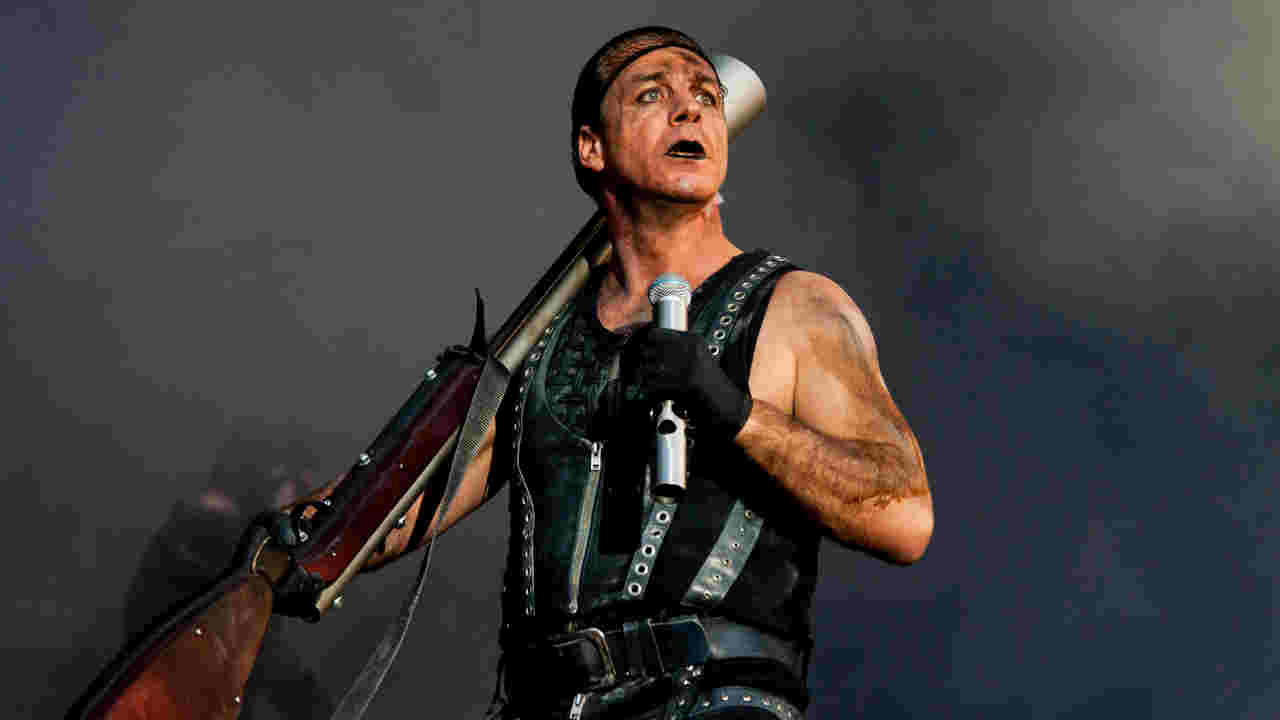The life and times of Rammstein’s Till Lindemann
Late bloomer, Olympic swimmer, punk rock drummer, “extreme human being” – these are the many faces of Rammstein’s Till Lindemann

When he was young, Till Lindemann believed that his role in life was to destroy the West and its decadent culture. Back then, Germany was a disunited nation made up of two politically and physically opposed states: capitalist West Germany, aka the FDR, and communist East Germany, aka the GDR. Till was born and raised in the city of Leipzig, deep in the heart of the GDR, and bought into the party line wholesale.
“In school we had to study political subjects, then watch the news or read the articles of the official newspaper of the state, and then write essays,” said Till in 2015. “The brain-washing was such that I was convinced I would someday go in Western Europe to annihilate the evil capitalists.”
The ironic thing is that, nearly 30 years after the fall of the Berlin Wall, this son of the GDR has gone some way to achieving that goal. He hasn’t quite brought the West to its knees, but Till and Rammstein have infiltrated and subverted its culture in a way that no one could have foreseen 25 years ago.
Rammstein guitarist Richard Kruspe has known Till since before the Wall fell. “He’s a damn extreme human being,” said Richard in 2018. “He gets very deep into situations where I cannot follow him. All he does is very extreme; I don’t know anyone else who does that.”
- Rammstein: The birth of a legend
- The Story Behind The Song: Rammstein's Du Hast
- “Amerika ist wunderbar!”: how Rammstein conquered the USA
- Rammstein's most controversial videos
Till has a different view. He once described himself as “a simple boy from the countryside, who never strived for success”, though that undersells his middle-class upbringing.
He was born on January 4 1963, and grew up in what is now the north-eastern German federal state of Mecklenburg-Vorpommern. His mother, Gitta, was a journalist and his father, Werner, a poet and children’s author with hardline socialist views. Till’s parents separated when he was young, and he had a strained relationship with both, particularly his father. Werner seemed dismayed that his son had developed an interest in western rock music and girls from the neighbouring villages. Till responded by mocking his father’s profession. “I kept telling him, ‘If I can’t be something useful, I can always become an author,’” Till later said. “He was always annoyed by that.”
The discipline that would characterise his work with Rammstein was instilled early on. By his early teenage years he had been pushed into swimming competitively and was good at it, too – he was in with a shout of attending the 1980 Moscow Olympics as part of the East German swim team, until a head injury nixed that idea. Instead, he immersed himself in the arts. Deep Purple’s 1974 album Stormbringer, bought on the East German black market, was a key musical touchstone, as were the works of such Western literary figures as dissolute poet-author Charles Bukowski and JD Salinger, author of teen-angst touchstone The Catcher In The Rye. “The despair of the youth,” Till later said. “That was my life. Everything went wrong for me, too [with women]. I was totally a late bloomer. It didn’t change until 18 or 19.”
Sign up below to get the latest from Metal Hammer, plus exclusive special offers, direct to your inbox!

He has more than made up for it since. A fascination with all things carnal has been a key theme of his lyrics for the past 25 years. “I have always been interested in the hottest, unusual and scabrous aspects of life, especially to love and sex,” he said in 2015. “Subjects like fetishism, what others call sexual deviations, the different sexual preferences, sadomasochism.”
Still, he has always insisted that there’s more to his worldview than just 50 shades of lust. “I’m not obsessed with sex,” said the man who was a regular habitué of Berlin’s fetish clubs. “It’s a provocation, it’s a humour, and it’s the small, savoury spice in the stew that will make people listen up. It’s supposed to catch your attention. Nothing else.”
That might be the case, but songs such as Bück dich and Golden Shower (the latter by his English-language side-project, Lindemann), the hilarious and subversive videos for Sonne and Pussy, and Till’s dildo-wielding, keyboard-player-pegging onstage antics suggest that sex is still a major pre-occupation. As Richard once put it: “I think it’s great that he found the music to express his way of life.”
It’s ironic that one of the most commanding frontmen in music never actually started out as a singer. In the mid-80s, he drummed for underground punk band First Arsch, alongside future Rammstein bandmates Richard Kruspe and Paul Landers. It wasn’t until Rammstein formed in 1994 that he properly assumed the job of frontman, though with hindsight it seems to be a role he was born to.
“Till radiates complete authority in my eyes,” says Rammstein keyboard player Flake Lorenz. “When he sings or says something, you realise that he also means it. That makes the whole song a lot more precious. Especially since there are singers who say or sing just about anything because it sounds good. With Till, you know that he means it.” That dedication extends to the band’s live show – Till is a certified pyro technician, which gives him a level of investment what happens onstage that other singers don’t have.
Given that they’re the product of a totalitarian state, it’s fitting that Rammstein operate like an army, rigid and inflexible, with every decision having to be agreed by all six members. “Rammstein is a big corset that asphyxiates you,” the singer once said of his band.
He occasionally loosens that corset. In 2003, he appeared in German children’s film Amundsen Der Pinguin (about a penguin that finds treasure, obviously). In 2015, he collaborated with producer and Hypocrisy mainman Peter Tägtgren in Lindemann, a project that saw Till singing entirely in English. The duo subsequently worked on music for Hänsel Und Gretel, a 2018 play staged at Hamburg’s Thalia Theatre in which the singer also appeared as a phantom.
And then there’s his life away from the arts. Till is both a father and a grandfather, with a house in rural Germany, far removed from the bustle of Berlin. “I fish. I hunt. I stare at the lake,” he says. “I sleep at night in the forest and listen. Terrific, what you hear at night in the forest. It’s indescribably beautiful. I hate noise. I hate chatter. I expose myself to it, which is pure masochism. And then I must protect myself from it. Noise drives you crazy. You’ll die in it.”
In 2014, he and a friend, musician and sportsman Joey Kelly, spent some time kayaking and fishing in the Yukon, the remote area of Northern Canada near Alaska. “It was great to be in direct contact with Mother Nature,” he said of the trip. “I need a refuge beyond studios and stages, to be alone or with family and friends, it can be my home or a cabin in the woods of Alaska.”
It’s not a surprise that freedom is important to someone who grew up in a restrictive environment, whether that’s the freedom of nature, the freedom rock stardom offers or the mere freedom to sing about whatever he wants. Western culture might not have been annihilated, but Till’s other victories are immeasurable.
Published in Metal Hammer #330
Dave Everley has been writing about and occasionally humming along to music since the early 90s. During that time, he has been Deputy Editor on Kerrang! and Classic Rock, Associate Editor on Q magazine and staff writer/tea boy on Raw, not necessarily in that order. He has written for Metal Hammer, Louder, Prog, the Observer, Select, Mojo, the Evening Standard and the totally legendary Ultrakill. He is still waiting for Billy Gibbons to send him a bottle of hot sauce he was promised several years ago.

